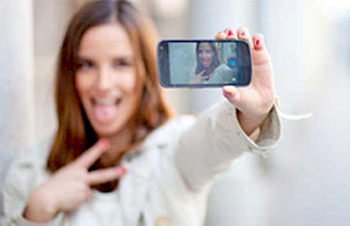Washington, Oct 27: Taking a photo of a skin lesion and sending it to your dermatologist for analysis may be a valuable piece of skin care, a new study suggests.
 An online model for follow-up care of atopic dermatitis (eczema) that gave patients direct access to dermatologists resulted in equivalent clinical improvement compared to patients who received traditional in-person care, researchers said.
An online model for follow-up care of atopic dermatitis (eczema) that gave patients direct access to dermatologists resulted in equivalent clinical improvement compared to patients who received traditional in-person care, researchers said.
Researchers conducted a one-year randomised controlled equivalency trial that included adults and children with atopic dermatitis who had access to the Internet, computers and digital cameras.
The study included 156 patients: 78 patients visited dermatologists at their offices for follow-up care, while the remaining 78 patients accessed care online, which included electronically transmitting clinical pictures to dermatologists who evaluated them, provided treatment recommendations and prescribed medications.
The severity of the atopic dermatitis was measured by patient-oriented eczema measure (POEM) and investigator global assessment (IGA).
Between baseline and 12 months, the average difference in POEM score in patients in the online group was minus 5.1 and minus 4.86 in the in-person follow-up group.
The percentage of patients achieving clearance or near clearance of their atopic dermatitis (IGA score of 0 or 1) was 38.4 per cent in the online group and 43.6 per cent in the in-person group.
"Health services delivery in dermatology is an exciting and evolving field. With the changing health care environment and a growing demand for dermatologic services, technology enabled health care delivery models have the potential to increase access and improve outcomes," said author April W Armstrong, of the University of Colorado, Denver, and colleagues.
"As with any novel health services delivery models, comparative effectiveness studies investigating health outcomes are critical to evaluate these new models in an evidence-based approach," said Armstrong.





Comments
Add new comment